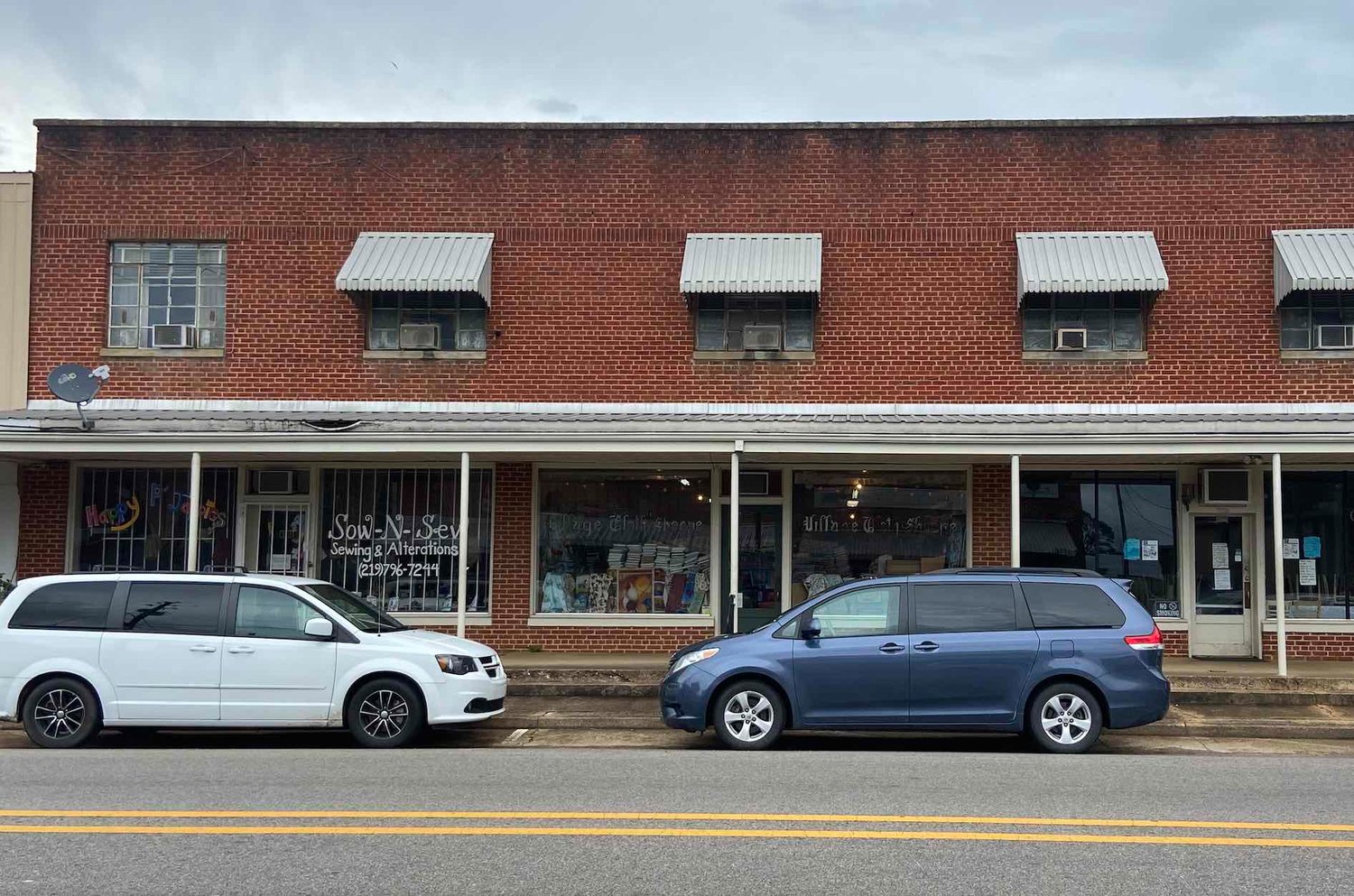Two DeKalb businesses stay strong together
A Taste of Heaven and Village Cloth Shoppe are situated adjacent to each other in downtown De Kalb, and in the harsh times of the coronavirus pandemic, the two businesses have become quite close.
A Taste of Heaven is run by the Miller family, who have lived in De Kalb since the late 1990s. The restaurant has been open for about five years now, and it serves traditional American fare.
Robert Miller, one of the employees and son of the Miller matriarch, puts great emphasis on A Taste of Heaven being a family business.
"This is family-owned. My mom, she's the head cook, and I have two sisters. They pretty much the backbone. And I do all the errand running and whatever else I can do," Miller said.
Though Miller assured the restaurant is usually packed with customers, the dining area is now full of tables topped with upside-down chairs, signaling dine-in is no longer an option. Instead, customers call in their orders from outside, and their food is waiting for them on a white table blocking the front door. This way, Robert said, both the staff and customers have limited contact with each other.
A Taste of Heaven began with Robert's mother catering for local church events, and after cooking and saving money for over a decade, the family decided they wanted to open a restaurant. Though the family previously worked and owned a hair salon, their efforts have since moved to running A Taste of Heaven.
The name, somewhat obviously, and the restaurant's ethos are heavily influenced by the family's faith. The patriarch of the family is a minister in Kosciusko, Mississippi, and the restaurant's décor proudly displays bible verses and Christian imagery. The family takes it as far as to be closed on Sundays, in reverence for the Lord's Day.
"We put God first in everything," Miller said.
The building A Taste of Heaven is housed in is owned by Carolyn Hobgood, who runs and owns the Village Cloth Shoppe next door. Miller appreciates the symbiotic relationship the two businesses have fostered over time.
"I like how business is going because, say if someone wanted a to-go order, they'll go over to Ms. Carrie's cloth shop and look around or whatever," Miller said. "They'll patronize her and then come back and get their food. Hey, that's two-for-one."
As for her end, Hobgood sends her customers over to A Taste of Heaven, so both businesses receive a boost. The fried green tomato cheeseburger is her particular recommendation.
Village Cloth Shoppe was started in 1971 under Hobgood's mother, and Hobgood has worked there ever since. Though she taught high school for three years before the store's inception, the turbulent times of the 1960s made Hobgood reconsider her career path, and since textile work was originally her area of study at the University of Alabama, Village Cloth Shoppe filled that need. Nearly a half-century later, the store has expanded, and business is still good.
The coronavirus pandemic has been a boon for Hobgood's store, for the demand in fabric for masks has skyrocketed. So much so, the supply for fabrics, and materials like elastic thread, is having a hard time meeting the increase. Hobgood commented on the difficulty in keeping University of Alabama-themed merchandise on the shelves, and other SEC school fabrics have a similarly short time before they are snatched up.
Hobgood is impressed with the creativity and innovation of people making masks. She particularly mentioned a mask someone gave her made from a disposable dinner plate, which someone had sewn a center in. All over YouTube, Hobgood is now finding tutorials for making masks in unique ways.
At first, Hobgood did not know whether her business should stay closed or not when the state lockdown happened, but she decided she had work to do in the store, whether the store was open or not. Hobgood soon found people were more than willing to buy fabric still.
"I thought, ‘Well, I guess it is essential, in a way, cause they need the masks," Hobgood said.
Therefore, Hobgood has stayed busy during the pandemic, stocking shelves with fabric that can be used to make life-preserving masks.
"You look at it different ways," Hobgood said. "You know, you think it's sad that people have to do this, that they have to make masks to protect, but then, the upside of that is that some people have been able to make money off it … I hear a lot of ladies in here say, ‘I make anywhere from 100 to 200 masks a day,' and they sell them for five dollars apiece. So the home sower has been able to make money."
Many of the people who are now buying fabric are first-time sowers, according to Hobgood, for a mask is one of the less difficult endeavors in the world of sewing.
"A lot of times, they were people who have never really sewn before, but a mask a doable thing," Hobgood said. "It's basically… a square, and you sew, and turn it, and pleat it up and put elastic in it. And you've got a mask made."
Both businesses have uncertain long-term plans, but the short-term plans are both the same: stay in business. Along the way, these two downtown De Kalb features, one nearing 50 years and the other nearing five, are helping each other through tough times.

